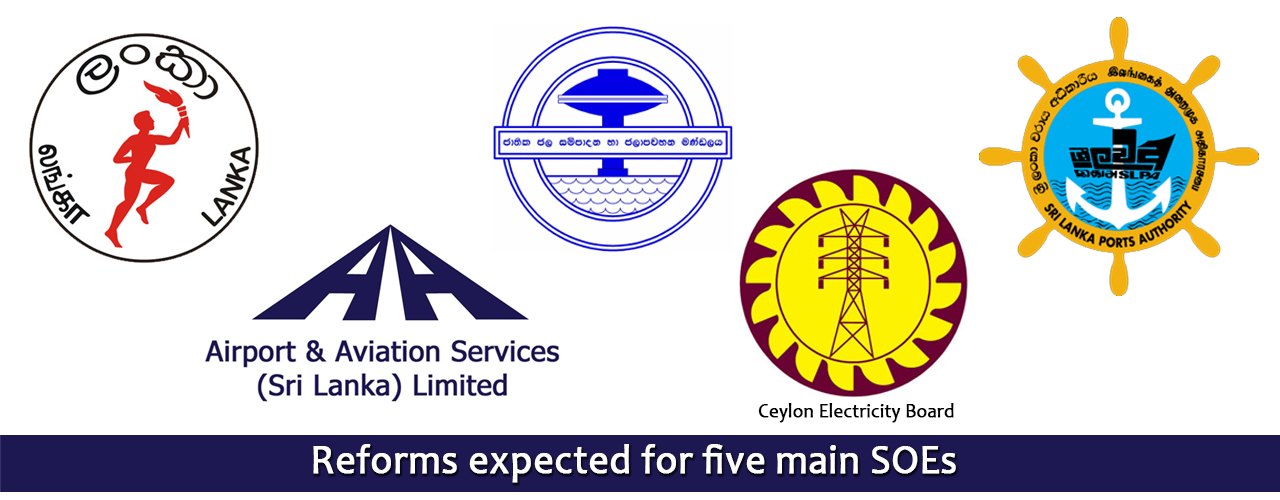Reforms expected for five main SOEs
Five main state owned enterprises (SOEs) in the country, namely; Ceylon Petroleum Corporation (CPC), Ceylon Electricity Board (CEB), National Water Supply and Drainage Board (NWSDB), Airport and Aviation Services Ltd and the Sri Lanka Ports Authority (SLPA) are reportedly expected to be subjected to a management restructuring process in the near future.
With the technical assistance of the IMF, the Finance Ministry intends to introduce a more detail-oriented SOE policy and a properly regulated method of financial management.
As per the stipulations of the IMF’s USD 1.5 billion Extended Fund Facility the Government of Sri Lanka (GoSL) will initiate these changes in order to turn around these loss-making SOEs converting them into competent and self-supporting entities.
According to the source the purpose of these reforms is to improve oversight and financial discipline within these SOEs ensuring that they transform into professional commercial enterprises, “… based on prudent commercial principles, ensuring adequate returns equal to or more than the comparable commercial enterprises in the private sector.”
These reforms will be instituted to the “… mission, high level objectives, and multi-year corporate plan; capital expenditure and financing plans; and explicit financial and non-financial targetsincluding description and cost of non-commercial obligations…” of these SOEs.
An enhanced legal structure by introducing financial regulations to oversee governance, accountability, and fund management will be instituted by the Finance Ministry.
According to Treasury data a total of 255 SOEs signify a sizeable proportion of Sri Lanka’s economic activity.
The source further stated that the five unprofitable SOEs continued to sustain losses due to a “… lack of good governance, low productivity of employees, poor financial management, weak internal controls and structural deficiencies.”
Finance Ministry findings indicate that as of the end of 2015 the total unsettled financial commitment of the GoSL and SOEs amounted to a staggering LKR 1.36 trillion.
Although some SOEs are profitable and performing well, collectively they represent a risk to public finances either directly or through the state banks which fund the largest SOEs.¹
OSL TAKE:
Once reforms are introduced to SOEs it will make them less risky for private investment. This coupled with the GoSL’s stance on promoting PPPs will contribute to more profitable public private partnerships (PPPs) being signed on in relation to SOEs.
¹ http://www.sundaytimes.lk/170924/business-times/five-top-soes-targeted-for-major-reforms-260213.html
| Article Code : | VBS/AT/26092017/Z_10 |

